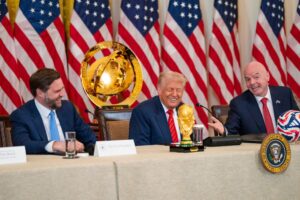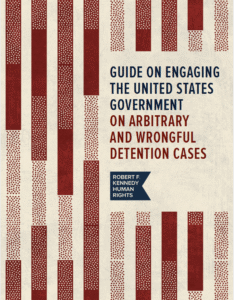(April 28, 2016 | Washington, D.C.) Robert F. Kennedy Human Rights calls on members of the United Nations Security Council to pass a strong mandate for the United Nations Mission for the Referendum in Western Sahara (MINURSO), including a human rights monitoring and reporting mechanism. The Security Council must vote to extend the mandate by April 30, 2016.
In a letter sent this week to members of the Security Council, Kerry Kennedy, President of Robert F. Kennedy Human Rights, criticized Morocco for expelling most of MINURSO’s international civilian component on the basis of a manufactured crisis, rendering the mission unable to carry out its mandate.
“Morocco’s attempt to effectively alter MINURSO’s mandate through unilateral action undermines the Security Council’s exclusive authority to approve and set mandates for peacekeeping missions,” said Ms. Kennedy. “Given the potential security implications, it passes understanding that the international community finds itself in this position because of Morocco’s exaggerated reaction to the Secretary-General’s off-the-cuff remarks, in which he expressed genuine empathy for people caught in the midst of a protracted humanitarian crisis.”
Ms. Kennedy also reiterated the critical importance of expanding the mandate to include a human rights monitoring and reporting mechanism. MINURSO remains the only United Nations peacekeeping mission established since 1978 that is still operating without a mandate to monitor human rights.
Robert F. Kennedy Human Rights has documented allegations of Moroccan authorities using excessive or unnecessary force to disperse peaceful protests calling for self-determination, the release of political prisoners, non-discrimination in employment policies, and respect for other political and socio-economic rights. Protesters and activists are subject to arbitrary arrests and unfair trials. Those injured by Moroccan authorities are often denied or feel compelled to refrain from seeking medical treatment. Sahrawi human rights organizations face myriad obstacles to obtaining official registration, and Morocco regularly prevents human rights defenders and activists from entering or leaving the territory.
During its recent review of Morocco, the United Nations Committee on Economic, Social and Cultural Rights observed that Sahrawis continue to face discrimination in the enjoyment of a number of their economic, social and cultural rights, including education, employment, and use of the indigenous language.
“In the face of human rights abuses perpetrated by Moroccan authorities, Sahrawis have nowhere to turn,” said Ms. Kennedy. “Yet they have continued to make their case for self-determination and respect for human rights peacefully, in a way that the international community should welcome and encourage. I urge the Security Council to hear their call and push for a human rights monitoring mechanism in MINURSO.”




